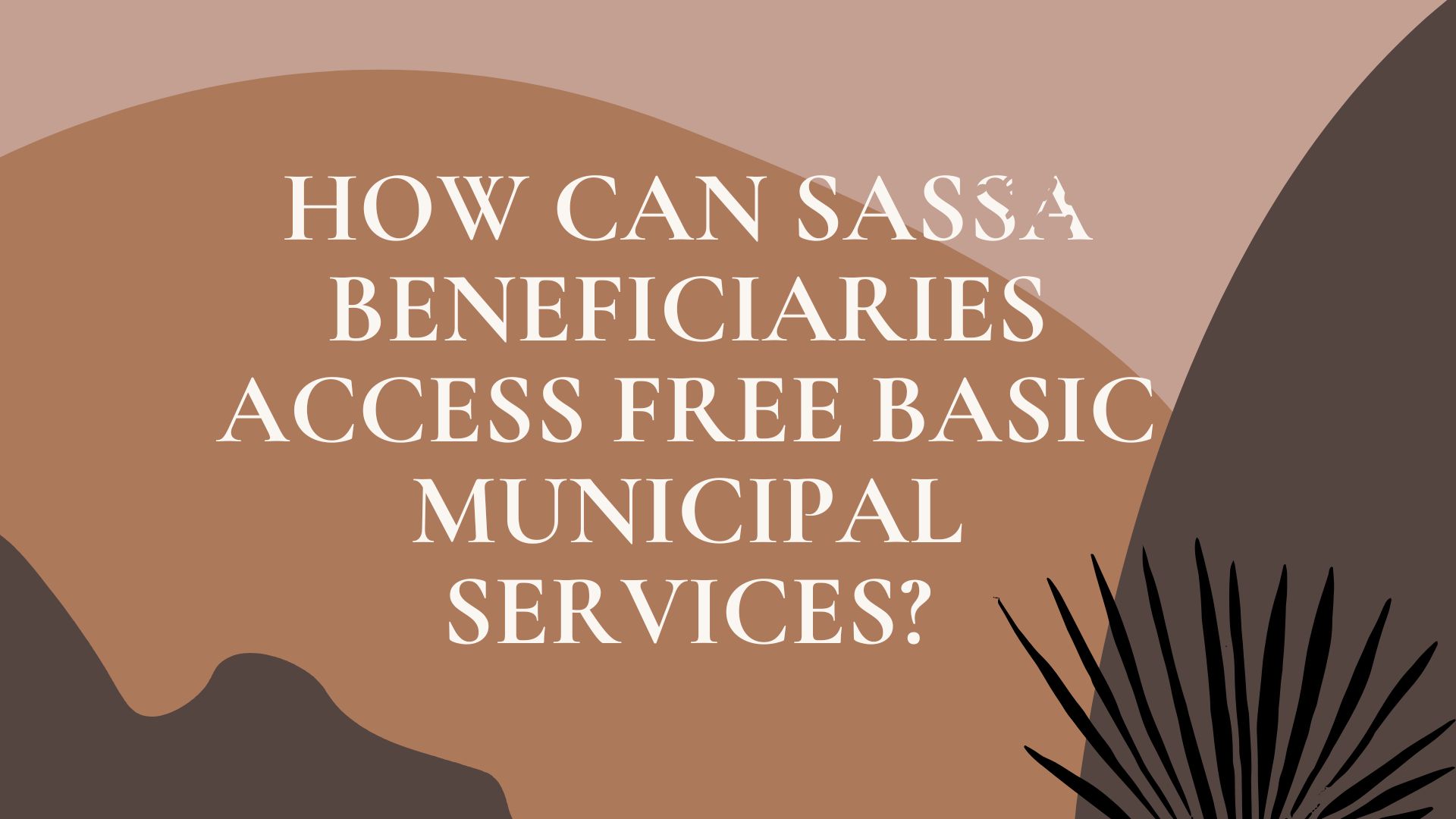Access to essential services like water, power, and sanitation is a human right. Recognizing this, the South African government provides free crucial municipal services to needy households with strict poverty standards. These services ensure that even the most vulnerable members of society have access to the necessities for a decent existence. This article will walk SASSA beneficiaries through obtaining these free essential services and comprehending the requirements and procedures involved.

What are the free essential municipal services?
Local municipalities give free essential municipal services to poor households. These services usually include:
- Free essential water is a minimal amount delivered to homes at no price.
- Free basic electricity: A limited amount of electricity is provided free of charge each month.
- Free basic sewerage and sanitation: Subsidies for sanitation and waste management.
- These programs are intended to meet the basic needs of destitute households so that even those with little financial resources can maintain their living standards.
Municipalities have the power to determine their criteria for indigent status. Therefore, the specific requirements may differ depending on where you live. In some locations, households may receive a 100% subsidy for these services; inothers, the payment may be reduced.
Understanding Free Basic Services:
- Free essential water.
Every impoverished home is entitled to a monthly supply of free water. Typically, this is set to 6 kiloliters (6,000 liters) per month. This amount is usually enough to provide a household’s basic needs, such as drinking, cooking, and cleanliness. However, if your home consumes more than the allotted free water, you must pay for the excess. The amount of free water and additional usage cost vary per municipality, so verify with your local office.
- Free basic electricity.
Indigent homes also receive 50 kilowatt-hours (kWh) of electricity free monthly. This amount is sufficient to meet basic requirements such as:
- Lighting
- Use a kettle to boil water and iron clothing.
- Operating a small black and white television
- Listening to the radio
You must pay for the excess electricity if your household consumes more than 50 kWh. This is simple to handle if you use a pre-paid power meter, which shows you exactly when you’ve used up your free allocation. If you use a traditional meter, you won’t be able to monitor usage quickly, and any overusage will be taxed at the end of the month. Municipalities may supply alternative energy sources, such as solar power, to residents who do not have access to grid electricity. Contact your municipality to learn about the alternatives available in your region.
- Free basic sewerage and sanitation.
Municipalities also subsidize sanitary services such as sewage and solid waste disposal. These services may be subsidized up to R50 per month or entirely subsidized based on the household’s indigency status. This guarantees that even the most impoverished homes can access basic sanitation, critical for public health and dignity.
What Happens If You Don’t Qualify?
If your household does not qualify for poor status but you can still not afford essential services, other options may be available. This could include:
- Tariff rebates: Some municipalities provide lower tariffs to low-income households not qualifying as poor.
- Debt relief programs: Municipalities may provide programs to assist households in managing or eliminating municipal service debt.
- Addressing your case with your local municipal office to consider all available possibilities is worthwhile.
Why is Access to Free Basic Services Important?
Access to essential amenities such as water, power, and sanitation is critical for maintaining a reasonable standard of living. These services can be too expensive for low-income families. The government hopes to alleviate some of this financial burden by providing free essential services and letting families focus their limited resources on other priorities like food, healthcare, and education. These services are also crucial in promoting public health, notably access to safe drinking water and sanitation. Without these, communities are more vulnerable to waterborne illnesses and other health issues. Furthermore, by providing free electricity, the government supports households in maintaining a safe and secure living environment.
Essential lighting and the capacity to power vital appliances such as kettles and irons significantly impact daily life, especially in rural locations or informal settlements where alternative energy sources may be limited.
Key Points to Remember
- Eligibility: Only homes that match the municipality’s standards can get free essential services.
- Application Process: To apply for indigent status, submit an application form and supporting papers to your local municipality.
- Yearly Renewal: To continue receiving benefits, indigent status must be renewed yearly.
- Subsidies vary. The quantity of free water, electricity, and sanitation services supplied varies by municipality, so check the specifics in your area.
Free essential municipal services can considerably improve the quality of life for impoverished households. If you are a SASSA beneficiary or live in a low-income home, you must understand the services you are eligible for and how to apply. By taking advantage of these benefits, you may ensure that your household’s fundamental necessities are covered without incurring additional financial burden. If you are unsure about your eligibility or need assistance with the application process, please contact your local municipal office. They can give you the information and help you require to access these critical services.
